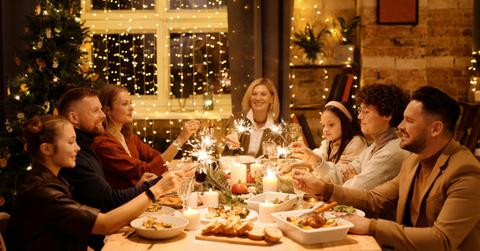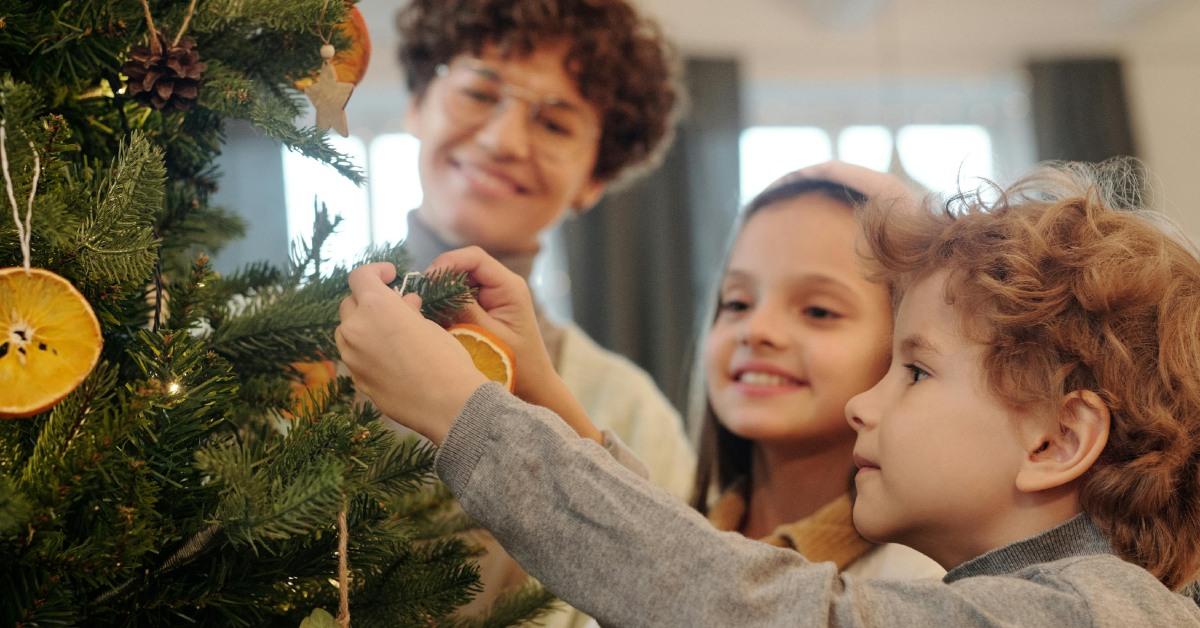According to Latinos, Christmas Is Celebrated on Dec. 24, but What’s the Reason for the Date Swap?
"Celebrating Christmas on Nochebuena is better. Deal with the festivities on the 24th and chill on the 25th."
Published Dec. 24 2024, 10:50 a.m. ET

Christmas is a widely celebrated holiday that falls on Dec. 25. It's observed by Christians, Catholics, Buddhists, Hindus, and even some Muslims. You’ve probably also heard terms like Yule and Navidad tossed around this time of year as well. For many, the festivities kick off with Christmas Eve on Dec. 24, leading into the big day on the 25th.
While Christmas traditionally honors the birth of Jesus, it’s also known for the exchange of gifts brought by the mythical figure Santa Claus, which occurs on the morning of Dec. 25. Santa’s origins trace back to Saint Nicholas, a monk from centuries ago known for his generosity.
Although most people tend to follow customary traditions associated with the holiday, many Latinos deviate from these and celebrate Christmas on Dec. 24. But why?
Why do Latinos celebrate Christmas on Dec. 24?

Latinos celebrate Christmas on Dec. 24, a day known as Nochebuena, which translates to "the good night." Whether you have Cuban, Mexican, Venezuelan, or another Hispanic background, the festivities kick off the night before with traditions honoring Jesus's birthday. The evening is usually filled with cooking, dancing, and spending quality time with family and friends.
In essence, Christmas celebrations are similar for Latinos — they just start a little earlier. According to a Reddit thread discussing why Cubans celebrate on Dec. 24, one commenter clarified that it’s actually a tradition for most Hispanics.
Another user , explaining that the reason Hispanics celebrate on Dec. 24 is because the "Nochebuena holiday has long ties to Catholicism and celebrates the night before the birth of Christ."
A third user added that gifts are often opened at midnight, technically making it Dec. 25, just like everyone else!
Redditor @Only_Razzmatazz_4498 shared that in Uruguay, their home country, "Santa arrives at midnight when we are all outside finishing the Christmas dinner, lighting fireworks, and enjoying the weather." Once Santa "arrives," everyone heads inside to open presents together. Afterward, they drive home to open even more gifts.
For Hispanic cultures, it’s essentially a win-win — they get their partying and gift exchanges done early, leaving Dec. 25 as a day to relax and watch the kids bask in the joy of everything they received.
Some Hispanic cultures don't believe in fictional figures like Santa Claus.
While it's customary for Hispanic cultures to celebrate Christmas, or Nochebuena, on Dec. 24, believing in the fictional character who miraculously slides down a thin chimney with a bag full of perfectly wrapped gifts isn’t as common. According to Redditor @Illustrious-Cycle708, "Generally, Hispanic culture doesn’t have fictional figures like Santa and Easter bunnies for Christian holidays."
They shared that gifts are typically opened on Christmas Eve "right at midnight" or on Three Kings Day on Jan. 6, depending on the country. In their home country, the Dominican Republic, adults don’t exchange presents, while children unwrap theirs on Three Kings Day — the day Jesus was visited by the three wise men bearing gifts.